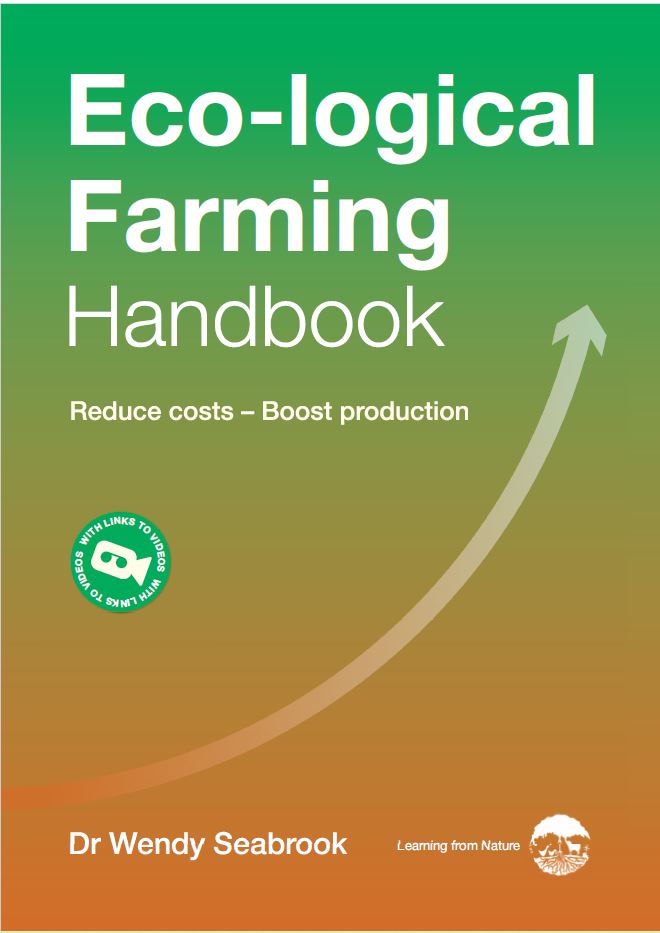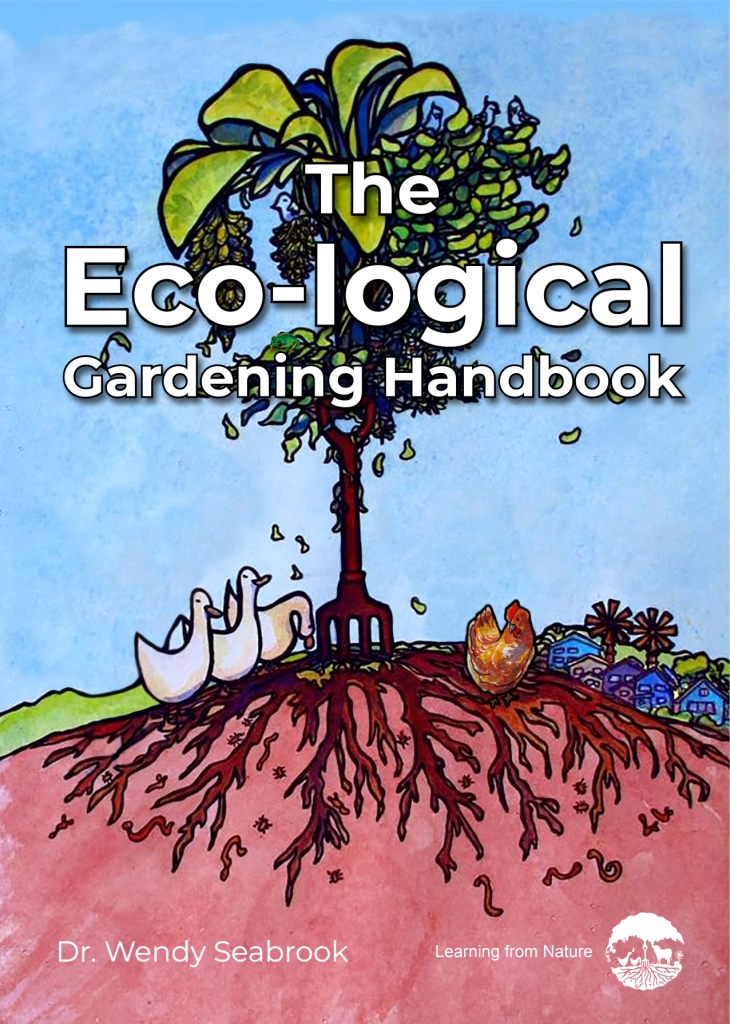Whether we’re growing veggies in a backyard in Wales or a community garden in Boston, fruit in a commercial orchard in Brazil, or running cattle in outback Australia, principles, if well-designed and thought-through, help us to focus on what’s essential and develop effective solutions.
The challenge in agroecology and regenerative agriculture is deciding which set of principles to apply. Search the web, especially for regenerative agriculture principles, and you’ll find a lot of them!
The team at Learning from Nature has developed these five guiding principles to support food gardeners and farmers in tackling the root cause of their growing issues by repairing the ecosystems within their vegetable gardens, orchards and fields.
Guiding Principles for Agroecology and Regenerative Agriculture
| Regain Nature’s free Ecological Services | Restore the ecological functions driving most of the action in your ecosystems – nutrient cycles, water cycles, solar energy capture, and flow. By regaining these free ecological services, you reduce your reliance on fertilisers, pest controls, and other external inputs. |
| Mimic Nature | Combine your ingenuity with three billion years of research and development by using regenerative practices that mimic how Nature repairs and maintains ecosystems in similar environments. |
| Grow from your Strengths | Get to know your growing conditions. You can then view your situation realistically, and use the animals and plants that thrive in your conditions to provide food and ecological services that improve the functioning of your ecosystems. |
| Build Connections | Intentionally create functional biodiversity by recruiting plants, livestock, microbes, and other animals to build beneficial relationships between the living and nonliving parts of your environment. By building these connections, you improve the functioning of your ecosystems and their capacity to withstand and recover from unfavourable conditions. |
| Co-create with Succession | Work with succession, using your observations of the sequence of changes in the architecture and types of plants and other living organisms as Nature repairs degraded ecosystems in similar environmental conditions. By accentuating the qualities you want, you shift your energy from holding back succession to co-creating ecosystems that are able to self-organise and self-evolve over time. |
Our goal in designing these principles is to enable growers to:
- Focus their decision-making on what will make a real difference
- Develop practical solutions for their unique circumstances – the principles can be applied regardless of climate, other growing conditions, and the type of food grown
- Combine their practical experiences and ingenuity with the collective experiences of food growers around the world and what science has deciphered from the evolved wisdom embedded in Nature
Applying these principles, we escape the trap of having “What practices should I use?” as our leading question, and instead, find ways to apply these principles to design suitable solutions for our unique circumstances. We grow food eco-logically!
Eco-logic behind these Principles
Regain Nature’s Ecological Services
Ecosystems are complex, but repairing them is relatively straightforward because nutrient cycles, water cycles, solar energy capture and flow are the three key ecological functions that drive the action in our farms and gardens. Virtually all of the issues holding us back are resolved by repairing these ecological services.
- Nutrient cycle – By repairing our nutrient cycles, soil organisms recycle the nutrients in plant and animal waste materials, and unlock nutrients from the mineral particles in our soil, making the nutrients available for plants and then for animals to reuse.
- Water cycle – Water cycles are enormous, but we can improve them by increasing water infiltration and storage in our soil, reducing water loss through evaporation, and getting excess water draining freely down through our soil to reduce waterlogging.
- Solar energy capture and flow – Why do we only think of fertilisers when we want to grow more food? Plants capture and store solar energy using their photosynthetic panels. By growing more solar panels, we make more energy available for the plants, microbes, invertebrates and other animals operating the ecosystems in our farms and gardens.
Mimic Nature
By looking closely at how Nature maintains ecosystems in similar types of country, we combine our ingenuity with three billion years of research and development. Natural ecosystems are our models of ‘best practice’. They are resilient, pest and disease-resistant, self-fertilising, and self-maintaining. Take a look at the native vegetation in your region. It doesn’t need anyone to spread mulch and compost, control pests, weeds, or mow! We can benefit too from these free ecological services by finding ways to mimic the repair and maintenance of these natural ecosystems.
Grow from your Strengths
Understanding our growing conditions we use plants, livestock, and other living organisms that thrive in these conditions and get more support from the ecological services they provide. We learn to respond to our local conditions, observe, and work with the experts!
Build Connections
By recruiting grazing animals, our chickens, other livestock, soil organisms, insects, birds, etc., to rebuild the beneficial relationships between our environment’s living and nonliving parts, we rebuild the complex network of connections enabling our ecosystems to function, withstand and recover from unfavourable conditions.
CoCreate with Succession
By looking at how Nature repairs natural ecosystems in similar types of country, and exploring ways to mimic the steps taken and processes used, we develop productive, resilient, complex adaptive ecosystems capable of assisting us with decision-making!
Support with applying these Eco-logical Principles
See how we use these ecological principles to regenerate our farm and home garden here
Or get help with applying these eco-logical principles in your garden or farm using our Eco-logical Farming and Gardening Handbooks.


